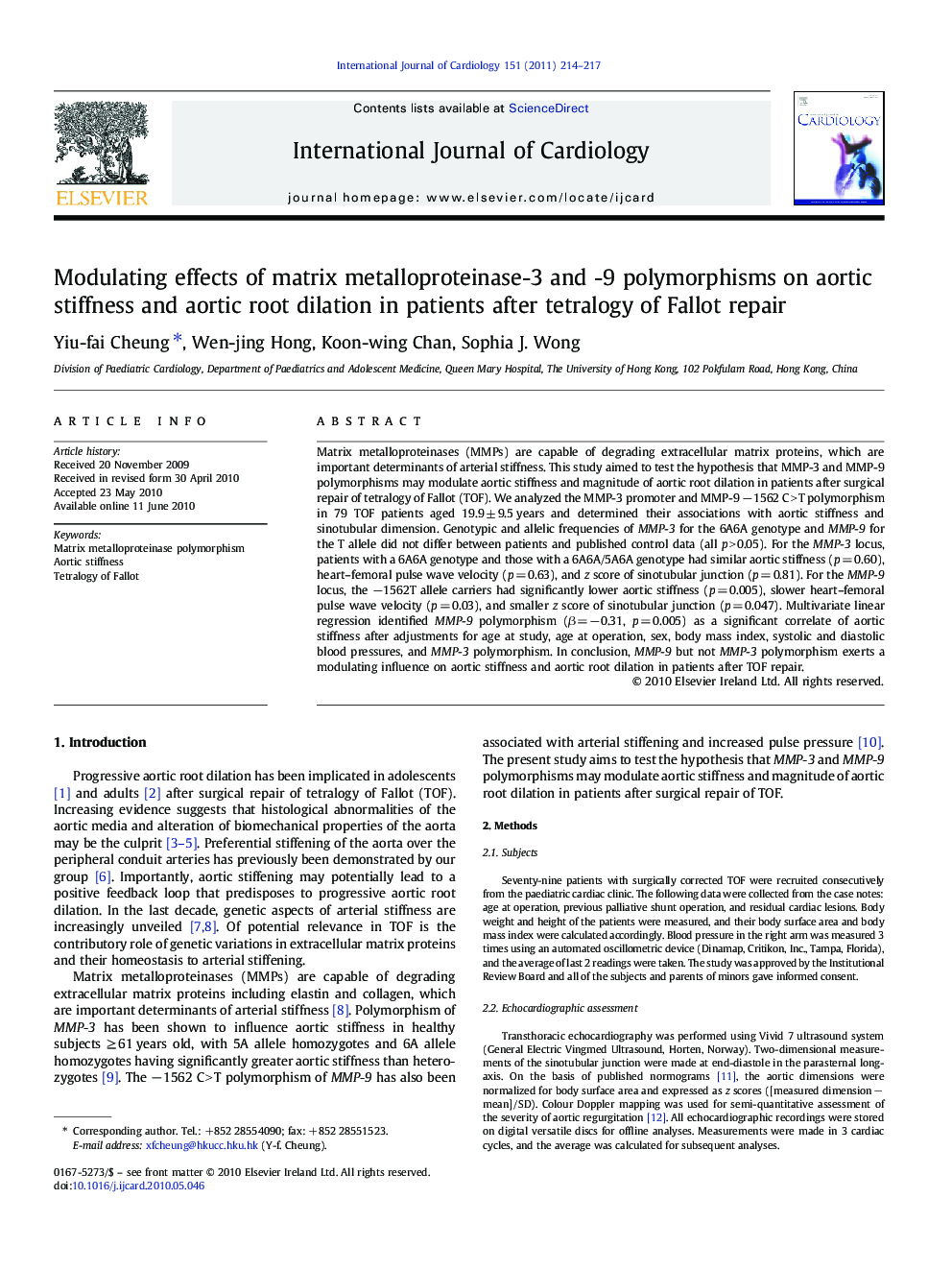| Article ID | Journal | Published Year | Pages | File Type |
|---|---|---|---|---|
| 5978901 | International Journal of Cardiology | 2011 | 4 Pages |
Matrix metalloproteinases (MMPs) are capable of degrading extracellular matrix proteins, which are important determinants of arterial stiffness. This study aimed to test the hypothesis that MMP-3 and MMP-9 polymorphisms may modulate aortic stiffness and magnitude of aortic root dilation in patients after surgical repair of tetralogy of Fallot (TOF). We analyzed the MMP-3 promoter and MMP-9 â1562 C > T polymorphism in 79 TOF patients aged 19.9 ± 9.5 years and determined their associations with aortic stiffness and sinotubular dimension. Genotypic and allelic frequencies of MMP-3 for the 6A6A genotype and MMP-9 for the T allele did not differ between patients and published control data (all p > 0.05). For the MMP-3 locus, patients with a 6A6A genotype and those with a 6A6A/5A6A genotype had similar aortic stiffness (p = 0.60), heart-femoral pulse wave velocity (p = 0.63), and z score of sinotubular junction (p = 0.81). For the MMP-9 locus, the â1562T allele carriers had significantly lower aortic stiffness (p = 0.005), slower heart-femoral pulse wave velocity (p = 0.03), and smaller z score of sinotubular junction (p = 0.047). Multivariate linear regression identified MMP-9 polymorphism (β = â0.31, p = 0.005) as a significant correlate of aortic stiffness after adjustments for age at study, age at operation, sex, body mass index, systolic and diastolic blood pressures, and MMP-3 polymorphism. In conclusion, MMP-9 but not MMP-3 polymorphism exerts a modulating influence on aortic stiffness and aortic root dilation in patients after TOF repair.
